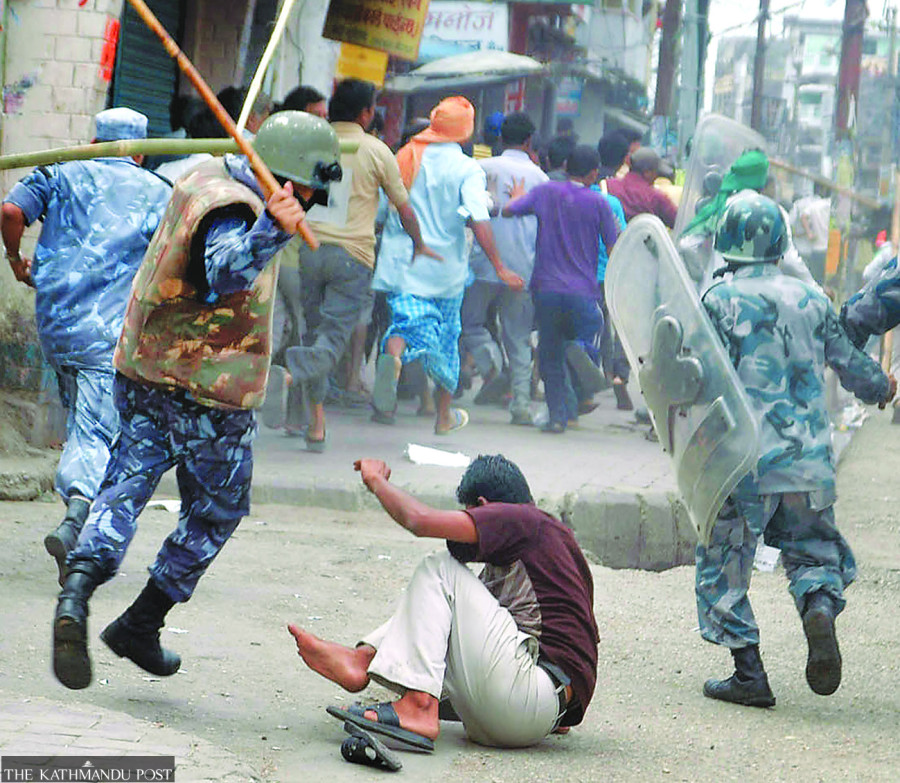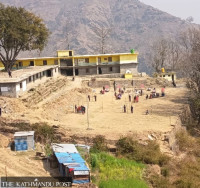National
Four years on, government keeps Lal Commission report secret
Governments have defied calls, including a court order, to make the report public.
Binod Ghimire
Making public a report by the Lal Commission, formed to investigate the deadly violence in the run-up to the promulgation of the Constitution of Nepal, has remained one of a major demands of the Madhes-based parties.
The government in September 2016 formed the high-level commission led by Girish Chandra Lal, a former justice at the Supreme Court, to probe the incidents of atrocities for necessary actions from the government. The commission did field visits, observed the spots and interviewed the victims, witnesses and the stakeholders and on December 16, 2017 submitted its report to the then government, which was also led by Sher Bahadur Deuba in his earlier stint as prime minister.
Despite the commitment, the Deuba government never made the report public. CPN-UML Chairperson KP Sharma Oli, who succeeded Deuba on different occasions, said there was no problem in publishing the report. However, despite two rulings from the House of Representatives and the Supreme Court’s order, his government didn’t bring the report to the public domain.
Four years have passed on Thursday and the government still keeps the report secret.
Following the reluctance of the government, a group of victims demanded the report using the right to information law. However, the government didn’t provide the report, making different excuses. Then the victims reached the National Information Commission asking for its intervention to gain access to the report. As the commission took no initiative, an advocate Sunil Chauhan on behalf of four victims of the violence—Shashidhar Pandeya, Dharmendra Murau, and Gita Kumari Barai of Rupandehi and Awadesh Prasad Kurmi of Parsa—filed a writ petition in the Supreme Court seeking its ruling against the information commission and the government.
The court in October 2019 had given a three-month deadline to the information commission and the government to make the report public or give the reasons if it cannot be done so. However, two years have passed, neither the information commission nor the government has abided by the court’s ruling. “The government has ignored the court’s ruling. We can assume that the report has pointed out the state’s atrocity which is why the government is reluctant to release the report,” Chauhan told the Post. “There was no point constituting the commission if the report was not to be made public or implemented.”
The lower house on two different occasions directed the then Oli government to present the report in parliament. Then Speaker Krishna Bahadur Mahara issued the ruling first in March 2019 and in August of the same year. However, the Oli administration defied the parliament’s order.
Talking to the Post, Lal, the chairperson of the commission, said they have presented the findings based on their study and being fully objective. He claims that there is nothing in the report that cannot be made public. “We studied the atrocities during the protests and presented them with facts,” he told the Post. “We have given the reasons for such protests and recommended solutions.”
Protest had erupted in the run-up to the Constitution promulgation, as regional parties opposed the plans of four major forces to push through the finalisation of the statute in the Constituent Assembly. The commission investigated a total of 3,264 complaints it had received.
According to the report, 66 people—including 10 police personnel, an 18-month-old toddler, four-year old Samman Patel and 15-year-old Nitu Yadav—were killed during the movement. The commission visited 18 districts for the probe. In Tikapur of Kailali, 10 policemen and an 18-month-old child were brutally killed by agitators in August 2015.
“Every government makes a commitment to release the report but it never happens. The culture of not walking the talk has raised questions about the reliability of the government,” said Lal. “The incumbent government in its common minimum programme has committed to make the report public but it hasn’t happened yet.” The common minimum programme of the ruling alliance released on August 8 says the Lal Commission report will be made public.
Deuba, who had received the report in 2017, is currently leading the government while the party demanding to make public the report is a ruling coalition partner. “The government will release the report in parliament once the CPN-UML withdraws its protest,” Mahindra Raya Yadav, a leader of the Janata Samajbadi Party who is a minister for Agriculture and Livestock in the Deuba government, told the Post. “We will first study the report and then can say whether it can be implemented.”
Chauhan said the victims are for moving the court again if the government continues to delay publicising the report. “We can file a contempt of court case against the government for defying the court,” said Chauhan. “We, on behalf of the victims, will file a petition soon.”




 27.41°C Kathmandu
27.41°C Kathmandu














